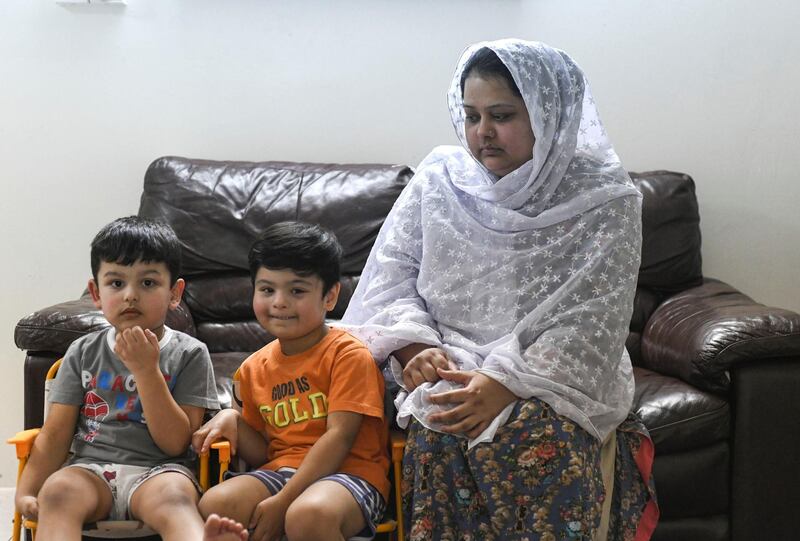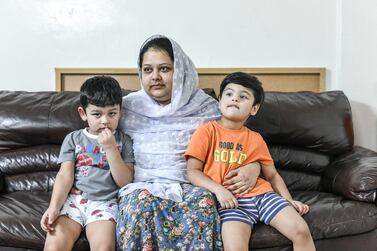A government authority in Abu Dhabi has intervened to resolve the case of a Pakistani family who were on the brink of separation after their residency visas expired.
Ahmed Ali, 43, was faced with having to send his wife and two children home to Pakistan if he could not come up with the Dh16,000 needed to sponsor them himself.
Last year, Mr Ali’s wife, Mahjbeen Ahmed, and their sons were granted six-month residency visas under the UAE’s amnesty programme that waived fines and penalties for those who had overstayed their visas.
Their visas expired on June 5 and Mr Ali, who has a visa and works as a freelance real estate agent, was unable to afford the fee to sponsor them himself.
The Abu Dhabi resident fell on hard times last year when he was imprisoned for a series of bounced cheques written in his name by a former colleague who fled the country.
He was left with a debt of more than Dh200,000. The Dh90,000 in court fines he owed were paid off with the help of the Pakistani embassy and community but Mr Ali still owed Dh117,000 to a former business acquaintance who filed a civil case against him when his cheque bounced. As a result, an arrest warrant was issued against Mr Ali.
This week, the human right’s section at Abu Dhabi Judicial Department intervened to help solve Mr Ali’s legal issues, allowing his family to stay.
Fatma Obaid, head of the section, said they offered to pay for his family’s flights home but Mr Ali said he preferred they remain in the UAE, where it is safer.
She said they waived his family’s overstay fines and that they were speaking to the man Mr Ali owes money to and working on formalising a payment plan. She said that if Mr Ali gets a steady, permanent job, they could lift his arrest warrant and travel ban.
“It is important that he find a job and he seemed eager to work when we met with him,” said Ms Obaid.
“So long as he is committed, secures a job then we can intervene and help resolve his other problems.”
The payment plan would ensure Mr Ali’s former business acquaintance would be paid in monthly instalments until the debt is paid.
Mr Ali has a degree in marketing and work experience in Abu Dhabi, having previously been employed by a travel agency, and he is keen to settle into a permanent job.
“My issue is not yet fully resolved and I know if I find a job, it will be settled faster,” he said.
After The National published his story, and it was shared on Facebook by Ms Ahmed, more than a dozen people came forward to offer help but Mr Ali is still shy of the total amount he needs.
So far, he has only received Dh500 in donations and toys for his children — which he says they are very grateful for.
The human rights section sees dozens of similar cases each week and helps resolve their problems by contacting the concerned parties and finding amicable solutions in agreement with the court.







